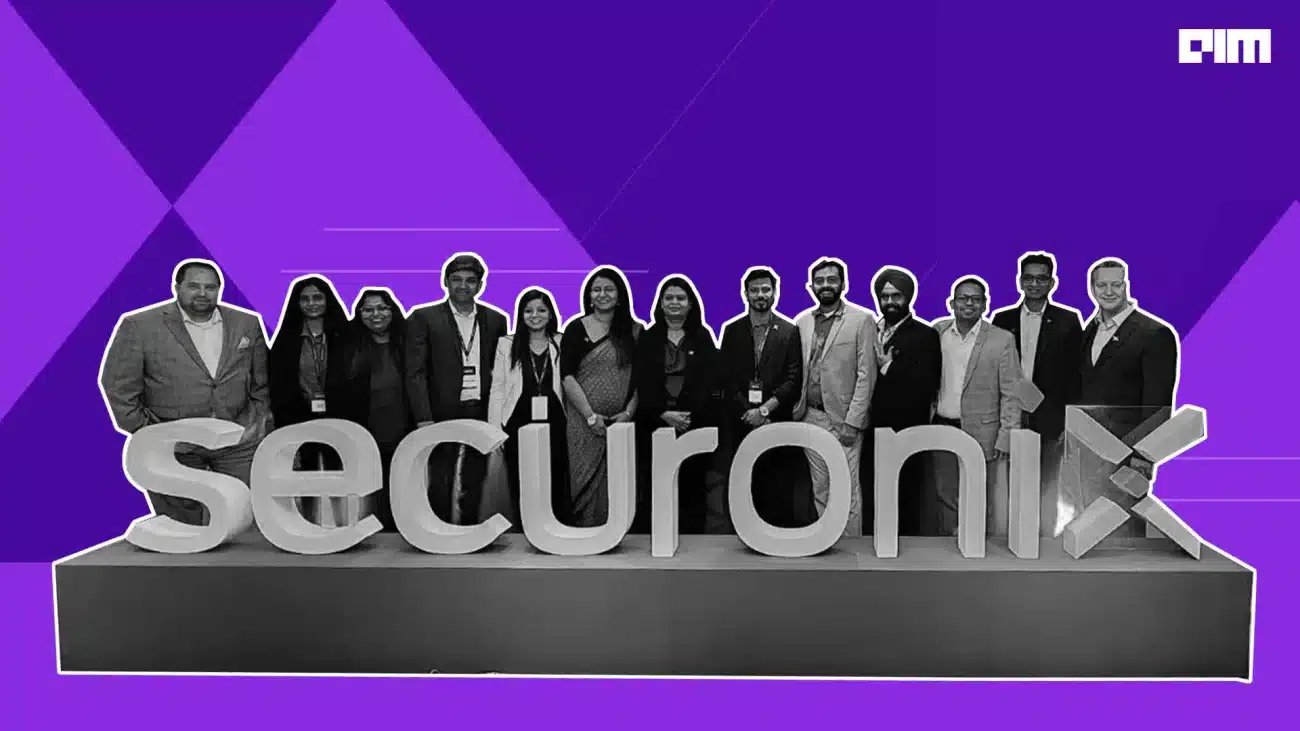Synaptics, a fabless semiconductor company that pioneered the development of touch-sensitive pads for laptops and computers, is betting on India’s semiconductor capabilities. AIM recently caught up with Michael Hurlston, CEO at Synaptics, during his visit to Synaptics’ base in Bengaluru, India.
“If you look at the semiconductor companies like Qualcomm, AMD or Intel, which have a footprint in India, what they typically do is they do a piece of the solution here and they do a piece of the solution in the US and they do a piece of the solution in Europe,” Hurlston said.
But in Synaptics’ case, everything from design and testing to implementation is seamlessly managed by its extensive team based here in India. “This team oversees the entire process, including crucial aspects like customer engagement and design,” he added.
Synaptics’ underlying semiconductor technology is currently found on the laptops developed by the top three players in the PC market- Lenovo, HP and Dell. Over the years, the San Jose-based company has expanded into other markets, including wireless connectivity, Internet of Things (IoT) as well as AI with their human interface technologies.
Betting on India’s semiconductor capabilities
“In India, we consider ourselves fortunate to have access to an exceptional talent pool for semiconductor engineering. The country boasts top-notch education, a highly competitive job market, and an abundance of skilled engineers, making it one of the best in the world,” Hurlston said.
Moreover, Synaptics believes it is contributing to India’s Design Linked Incentive (DLI) scheme in an indirect way. Contrary to other semiconductor companies, which only do the designing of their chips in India, that too, only in pieces, what Synaptics does in India is end-to-end.
Though it’s not a ‘Made in India’ product since India does not own the Intellectual Property (IP) right, Synaptics is helping the talent pool in India get their hands dirty in doing end-to-end product designing.
So far, Synaptics has already developed one wireless chip in India and is another one is in development. As they continue to grow their wireless business, they will further consolidate their efforts to handle everything locally.
“Our expertise spans a comprehensive array of wireless semiconductor technologies, extending to diverse processing technologies, encompassing various microprocessors,” Hurlston continued, “We excel in developing different sensors, including touch sensors, capacitive sensors, and computer vision. A substantial portion of these technologies originates from India in various capacities.”
On the manufacturing side
Synaptics’ chips are manufactured by Taiwan Semiconductor Manufacturing Company (TSMC) and it’s too early to talk about the possibility of Synaptics fabricating their chips in the country, given India still does not have a fabrication unit.
However, Hurlston adds that on the manufacturing side, Synpatics is open to getting the testing and packaging part of their chips done in the country.
Micron, a US-based semiconductor company, announced its plans earlier this year to set up an outsourced semiconductor assembly and testing (OSAT) plant in India and others are expected to follow.
But for Synaptics, the aim will always be to manufacture its product at the most economical cost. The company is presently assessing various OSAT vendors. If a vendor based in India comes up with a much lower cost proposition, then Synaptics is open to conducting testing and packaging operations in the country.
According to Hurlston, Synaptics has been approached by a few OSAT vendors seeking investments to set up their units in India; however, they had to decline.
“We declined to invest because we believe it will take a considerable amount of time before these facilities are fully operational. Once they are ready, we have committed to working with and partnering with the groups involved to initiate test packaging and testing.”
Hurlston adds that one of the companies that reached out to Synaptics for investment was ASIP. “While we may not currently invest, we are open to collaboration should they establish these facilities.”
Pivoting to IoT at an unlikely time
In 2019, Hurlston was appointed as the CEO of Synaptics and under his leadership, the company has redirected its efforts towards expanding its IoT business. Interestingly, Synaptics’ pivot to IoT came at a time when major businesses like IBM and Google had shut down their respective IoT divisions.
In fact, in 2020, Synaptics acquired Broadcom’s wireless IoT business assets and manufacturing rights. Hurlston believes companies failed in IoT because they didn’t understand the market.
However, Hurlston sees huge opportunities in two market segments- wireless connectivity and processors. The wireless connectivity market currently stands at roughly USD 9 billion whereas, roughly 9 billion. That’s the market size and the opportunity and the processor market is valued at 24 billion.
“For us, IoT encompasses a multitude of technologies. In our foray into the IoT landscape, we are honing our focus on processors, specifically embedded processors and endpoint processors, along with wireless connectivity. These two domains are our primary areas of concentration.
“We believe we possess the right technology in processors and wireless. By establishing the necessary infrastructure, we can effectively tap into these expansive markets,” he said.
Synaptics’ pivot to IoT has resulted in a 30% increase in their revenue, amounting to USD 1. 74 billion, with the IoT business growing by 80%.
Building a niche in AI
Besides IoT, Synaptics also sees a huge opportunity in AI, according to Hurlston. The company sees an opportunity to run AI on the edge, especially in the PC, smart devices and automobile sectors.
“We embed a neural network into our processors, facilitating a machine learning model to run on the chip itself. Recently, we released a chip designed for laptops, running a simple machine learning model that turns off the screen when no one is in front, conserving 30 to 35% of battery life for computer makers.”
Hurlston notes that Dell is a significant adopter of this technology, and the PC manufacturer aims to integrate it across their entire laptop range due to its substantial impact on battery life. Additionally, both HP and Lenovo have also embraced this technology.
This technology can be applied in automotive settings, featuring a computer vision model running on the edge. It detects and triggers an alarm if the driver shows signs of falling asleep. “While it may not be as prevalent in India, drowsy driving among long-haul truckers in the United States poses significant risks, leading to major accidents.”
Synaptics plans to take this technology to Tata Motors, one of the biggest automotive companies in India and globally.
“These are very simple things and we’re not trying to do gene sequencing or some complex facial recognition. Instead, our emphasis is on executing very simple functions, running machine learning models directly on the chip at the edge. This approach provides us with a significant advantage,” Hurlston concluded.











































































